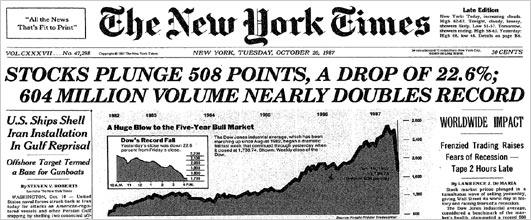
Friday, 21 August 2015
Thursday, 20 August 2015
Overall Market Conditions: Extremely Choppy Behavior - Caution is Warranted
Remember, some of the best market bottoms have been formed in late September and early October.
“With better awareness come better choices. And with better choices you’ll see better results. Clarity breeds success.”
Friday, 14 August 2015
Get more sleep and rest.
A large body of evidence suggests that we need at least seven to eight hours of sleep to function optimally, yet more than one-third of us in North America are getting fewer than six hours of sleep each night. What’s more, our culture doesn’t value leisure and rest. Most of us run around like chickens with our heads cut off each day, rushing from one ( trade ) task to the next and rarely taking time to pause, reflect, or decompress.
Here’s the bottom line: if you don’t get enough sleep or rest, you’re not going to (trade) perform at your best or be as healthy as you can be. I know this might sound so obvious it’s not worth saying, but a large percentage of (traders) people simply aren’t sleeping or resting enough. Here are a few tips for addressing this problem:
Here’s the bottom line: if you don’t get enough sleep or rest, you’re not going to (trade) perform at your best or be as healthy as you can be. I know this might sound so obvious it’s not worth saying, but a large percentage of (traders) people simply aren’t sleeping or resting enough. Here are a few tips for addressing this problem:
- Allow at least eight hours for sleep each night
- Create an environment conducive to sleep, no distraction ( TV, laptop, you know it)
- Reduce your exposure to artificial light at night
- Schedule 30 minutes of rest into each day. This could be meditation, a relaxation technique, or simply taking a nap.
- Designate one day a week as a “technology sabbatical”: no email, social media, or web browsing. This can really help you to unwind.
If you follow these tips for the next few weeks, I’m confident that you’ll see some positive changes in your (trading) performance and health.
Thursday, 13 August 2015
What is Deliberate Practice?
Deliberate practice is a highly structured activity engaged in with the specific goal of improving performance.
Deliberate practice is different from work, play and simple repetition of a task. It requires effort, it has no monetary reward, and it is not inherently enjoyable.
When you engage in deliberate practice, improving your performance over time is your goal and motivation.
That’s not to say that deliberate practice can’t be designed to be fun, but it isn’t inherently enjoyable on it’s own.
If you want to gain skills rapidly or approach expert-level status at something, you must understand the importance of deliberate practice and learn how to incorporate it into your daily life.
The Four Essential Components of Deliberate Practice
Research into the history of education (dating back several thousand years), combined with more recent scientific experiments have uncovered a number of conditions for optimal learning and improvement. Again, from K. Anders Ericsson, here are the four essential components of deliberate practice.
When these conditions are met, practice improves accuracy and speed of performance on cognitive, perceptual, and motor tasks:
- You must be motivated to attend to the task and exert effort to improve your performance.
- The design of the task should take into account your pre-existing knowledge so that the task can be correctly understood after a brief period of instruction.
- You should receive immediate informative feedback and knowledge of results of your performance.
- You should repeatedly perform the same or similar tasks.
It’s important to note that without adequate feedback about your performance during practice, efficient learning is impossible and improvement is minimal.
Simple practice isn’t enough to rapidly gain skills.
Mere repetition of an activity won’t lead to improved performance.
Your practice must be: intentional, aimed at improving performance, designed for your current skill level, combined with immediate feedback and repetitious.
What Deliberate Practice Means for You
- Natural ability is no excuse.
- How you practice matters most.
- How long you persevere determines your limits.
- Motivation becomes the real constraint on expertise.
If you’re 5’5″, maybe you shouldn’t set your sites on becoming an NBA center. Some physical limits are obvious. Most other “limits” are cop-outs or relics of old misunderstandings about talent.
What’s cool is that even limits of brainpower can be overcome with deliberate practice. One-on-one tutoring has shown to greatly reduce the differences in achievement between students of different cognitive abilities.
To benefit from practice and reach your potential, you have to constantly challenge yourself.
This doesn’t mean repeatedly doing what you already know how to do.
This means understanding your weaknesses and inventing specific tasks in your practice to address those deficiencies.
Becoming an expert is a marathon, not a sprint.
You cannot reach your mental and physical limits in just a few weeks or months. To grow to the top of your game, you’ll have to persevere for years.
Your practice has to be deliberate and intense, but it also has to be carefully scheduled and limited in ways to avoid burnout and long-term fatigue (both mental and physical).
Practice isn’t always fun. It’s an investment into improving yourself, your skills and your future.
In order to practice with intention for long enough to become an expert or gain useful skills, you have to find the motivation to make the investment.
Where will you find that motivation?
Subscribe to:
Comments (Atom)
